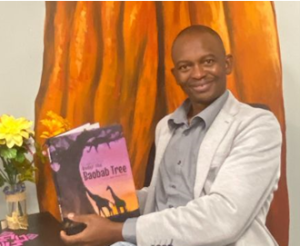(Rescheduled from earlier this year)
The MSVU Research Office is pleased to be hosting the next installment of its Black and Indigenous Speaker Series featuring Randy Headley. Randy is the Black Student Support Advisor at MSVU and a two-time alum of the university (BBA and MAEd). His presentation is titled “Unpacking the Underrepresentation of Black Students in Research at MSVU.”
When: Wednesday, November 6, 2024 from 12 p.m. to 1 p.m.
Where: Online via MS Teams
RSVP to speakerseries@msvu.ca.
In Randy’s presentation, he will underscore the underrepresentation of Black students in research within post-secondary settings such as MSVU and explain its repercussions. Drawing from personal interactions with Black students, he will share a comprehensive strategy to bridge this gap. By amalgamating scholarly literature, institutional data, and proven methodologies, he will describe a roadmap to cultivate an inclusive research atmosphere at MSVU.
 About Randy Headley
About Randy Headley
Randy Headley, Black Student Support Advisor, is the founder of the MSVU Afrocentric Support Group, a space that champions and aids the Afrocentric viewpoint. The Black Student Support Office at MSVU acknowledges the crucial need to address the underrepresentation of Black students in research. Programs such as the Black Students in Research Support Group, The Elder’s Circle, and the Baobab Project were developed to ignite interest in research among this demographic. As well, Randy is committed to his own research on topics including Africentricity, Critical Race Theory (CRT), and Equity, Diversity, and Inclusion (EDI) through an Africentric lens. His valuable contributions have enriched the MSVU campus and enhanced our understanding of these critical areas. He is also an MSVU alum.
About the Black and Indigenous Speaker Series
Hosted by the MSVU Research Office, the Black and Indigenous Speaker Series highlights the scholarly work of Black and Indigenous scholars from across Turtle Island. The purpose of this series is to initiate important conversation by inviting Black and Indigenous scholars to share their knowledge, worldviews, and their contributions to their respective academic field.